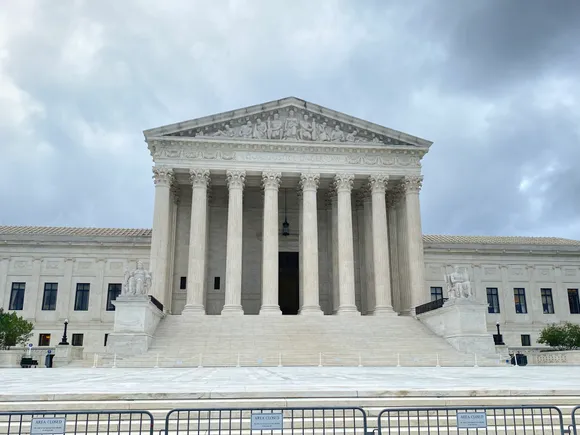Dive Brief:
- The City of Berkeley, California, implemented a new policy to resolve allegations it refused to let three disabled members of its Commission on Disability attend meetings remotely unless they subjected themselves to “burdensome, dangerous and invasive” conditions, according to a Sept. 24 press release from the Disability Rights Advocates, which represented the plaintiffs.
- Per the complaint in Fisher v. City of Berkeley, two of the plaintiffs use an electric wheelchair for mobility and at times need to attend meetings remotely from their bed due to their disability. The third has multiple sclerosis and is immunocomprised.
- City representatives allegedly approved their requests to attend a meeting remotely, but imposed conditions ostensibly required by state law: Their home addresses had to be publicly posted as teleconference locations, and they had to open their homes to any interested member of the public who wanted to attend the remote meeting there, the complaint said.
Dive Insight:
The three disability commission members sued Berkeley for violating Title II of the Americans with Disabilities Act, which is enforced by the U.S. Department of Justice and prohibits state and local public entities from excluding individuals from participating in or being denied the benefits of their services, programs or activities, the lawsuit explained.
Title II also prohibits public entities from denying an individual with a disability the opportunity to participate as a member of a planning or advisory board. Berkeley allegedly did this when it prevented the plaintiffs from attending meetings remotely because of its requirement they had to have their home addresses publicly posted and let members of the public into their home (and bedroom), according to the lawsuit.
While Title I (which covers employment) and Title II (covering public services) govern different aspects of the ADA, HR professionals may recognize a similar goal: To ensure that individuals with a disability “enjoy equal employment opportunities” (Title I) or access to state or local government programs through “reasonable accommodation” (Title I) or “reasonable modification” (Title II).
The U.S. Equal Employment Opportunity Commission, which enforces Title I of the ADA, has long recognized that remote work, or “telework” may be a reasonable accommodation when a person’s disability prevents them from “successfully performing the job on-site and the job, or parts of the job, can be performed at home without causing significant difficulty or expense,” the EEOC explains in a 2003 guidance.
In a 2020 survey, a majority of professionals with a disability or chronic illness said that remote work enables them to contribute to the workplace.
It’s an issue the EEOC has been actively enforcing. Last year, a facility management company agreed to pay $47,500 to settle an EEOC lawsuit alleging that it refused to let a disabled employee at high risk for catching COVID-19 work part-time from home, in violation of the ADA.
And recently, in mid-September, the EEOC sued a utility infrastructure provider for allegedly failing to accommodate an employee who had a stroke by letting her work remotely.
Under the Berkeley settlement agreement, the city’s new policy allows it to waive the allegedly invasive requirements regarding remote attendance if the person making the request cannot invite others in their home for disability-related reasons, “or may otherwise be subject to privacy intrusions or unwarranted harassment.”
The new policy also removes any limit on the number of disability commission meetings a member may attend remotely and requires the city to train employees on the policy and its implementation, the Disability Rights Advocates stated in the release.
“Commission members do not get paid, and there were no damages as part of the settlement,” DRA Supervising Attorney Jinny Kim told HR Dive in an email. However, there is a provision in the agreement for attorneys’ fees, which is a remedy available under civil rights laws, such as the ADA, Kim said.






Leave a Reply